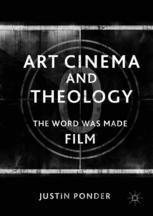

Most ebook files are in PDF format, so you can easily read them using various software such as Foxit Reader or directly on the Google Chrome browser.
Some ebook files are released by publishers in other formats such as .awz, .mobi, .epub, .fb2, etc. You may need to install specific software to read these formats on mobile/PC, such as Calibre.
Please read the tutorial at this link: https://ebookbell.com/faq
We offer FREE conversion to the popular formats you request; however, this may take some time. Therefore, right after payment, please email us, and we will try to provide the service as quickly as possible.
For some exceptional file formats or broken links (if any), please refrain from opening any disputes. Instead, email us first, and we will try to assist within a maximum of 6 hours.
EbookBell Team

0.0
0 reviewsThis book examines postmodern theology and how it relates to the cinematic style of Robert Bresson, Carl Theodor Dreyer, Ingmar Bergman, and Luis Buñuel. Ponder demonstrates how these filmmakers forefront religious issues in their use of mise en scène. He investigates both the technical qualities of film “flesh” and its theological features. The chapters show how art cinema uses sound, editing, lighting, and close-ups in ways that critique doctrine’s authoritarianism, as well as philosophy’s individualism, to suggest postmodern theologies that emphasize community. Through this book we learn how the cinematic style of modernist auteurs relates to postmodern theology and how the industry of art cinema constructs certain kinds of film-watching subjectivity.